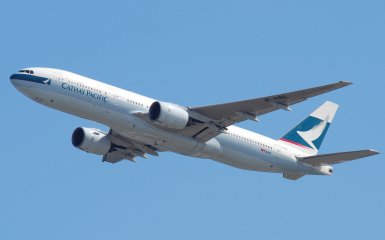In July 2022, employees of the Vnukovo airport in Moscow discovered a device that engineers call an "inertial air data reference unit" in a passenger's luggage. The goods weighed 11 kg and cost 40,000 dollars. It was intended for S7, the second largest Russian airline.
What is known about the provision of spare parts for Russian aircraft from the UAE
The baggage trade is a prime example of the non-traditional supply routes that Russian airlines have been forced to rely on since the February 2022 full-scale invasion of Ukraine. Hit by widespread sanctions and export controls, they have been forced to find new ways to supply parts to keep their planes in the air.
Sanctions pose a huge threat to air transport in Russia. The planes require ongoing support and regular software updates, as well as regular inspections — and Russian companies are now largely cut off from their suppliers.
Airbus, for example, told the FT that "there is no legitimate way that genuine aviation parts, documentation and services could have reached Russian carriers".
How sanctions affected the supply of spare parts for Russian aircraft
So far, there is little sign that the sanctions have significantly disrupted air travel within Russia. Cirium's data shows that the number of flight hours is roughly at pre-war levels. But data compiled by the FT shows that there has been a sharp drop in the volume of components imported into Russia over the past two years. Russia is also taking measures to extend the service life of foreign-made parts.
Turboshaft, a modest Emirati business registered in a warehouse at Sharjah Airport, is the source of how Russia gets its parts. In total, according to customs documentation, Turboshaft has shipped $1.5 million worth of goods to the Russian airline S7 since the start of the war.
Before the war, according to customs documents, 45% of American components for the S7 came directly from the USA. A similar volume of American goods arrived via France, Germany, Great Britain and the Netherlands.
Since then, less than 3% of goods come from these countries. About a tenth comes from China, a fifth from the Maldives, another fifth from Turkey and a third from the UAE. In most cases, they come from companies similar in profile to Turboshaft.
The UAE is a central hub in this trade for good reason: it has long been seen as a key location for transnational smuggling networks that supply aviation parts to Iran, whose aircraft industry has been forced to contend with various sanctions regimes since 1979, the paper notes.
The customs declarations also show another supplier to Russia, Treetops Aviation, with which Turboshaft has a very close relationship. With the beginning of the war, Treetops became a significant supplier to Russia. In 2023, according to customs documents, it shipped $7 million worth of S7 spare parts.
The company became the second-largest supplier of parts for the S7 — and the largest not directly subject to US sanctions.

